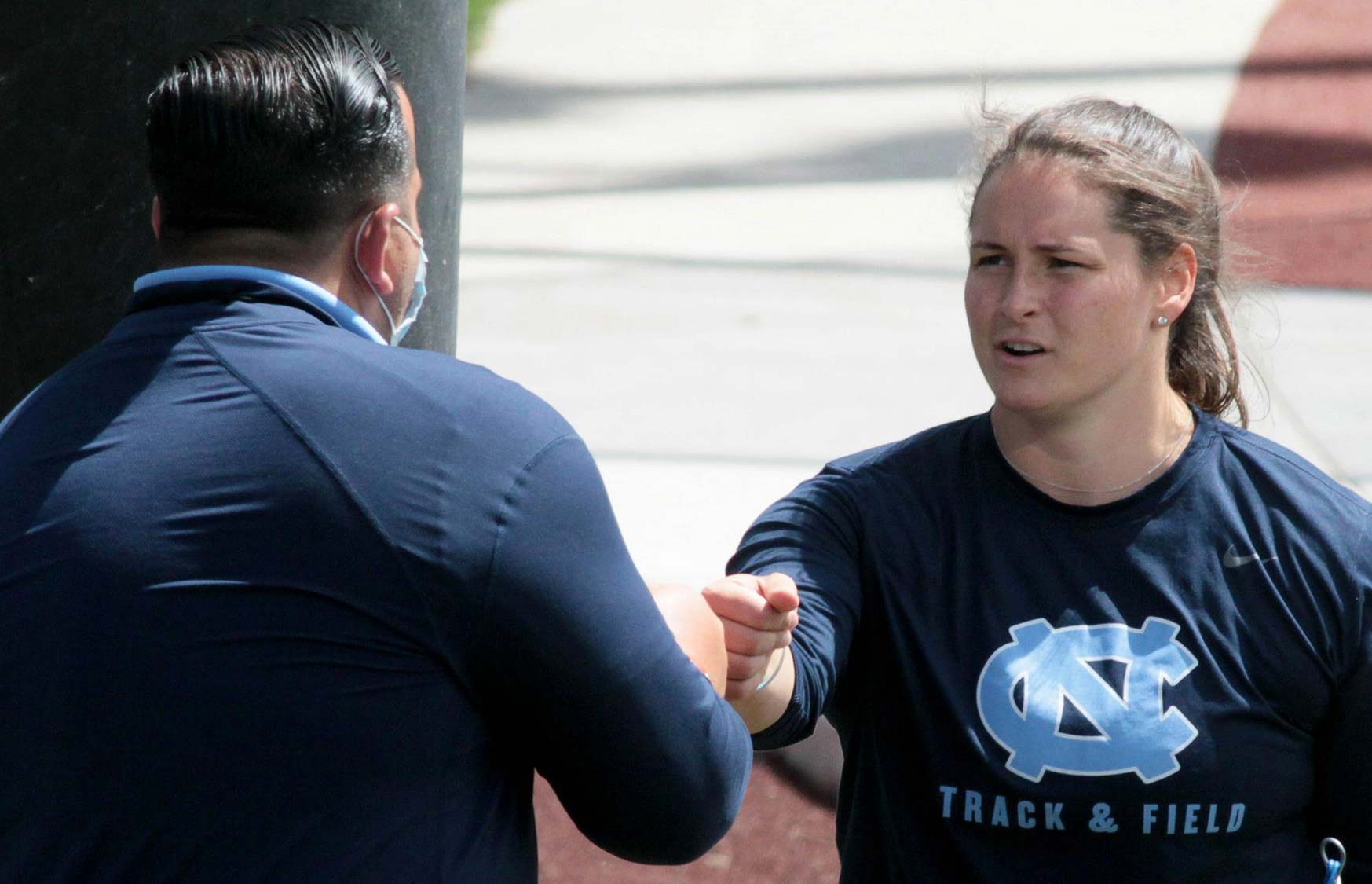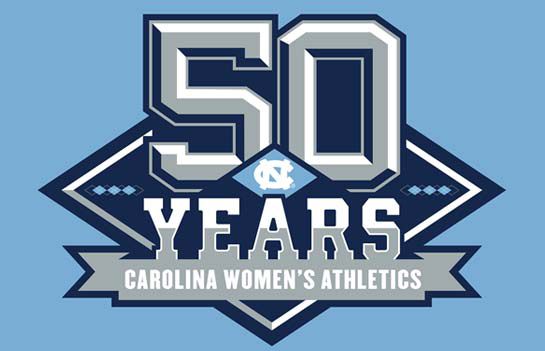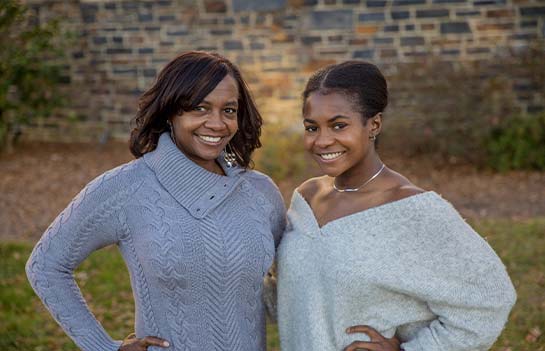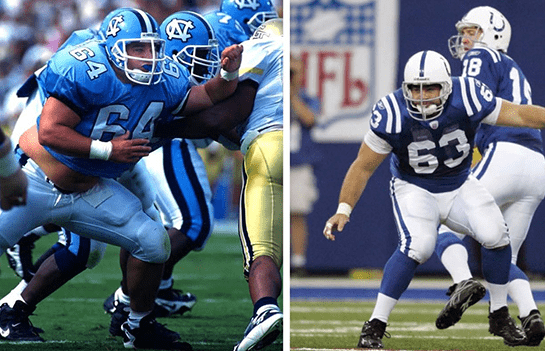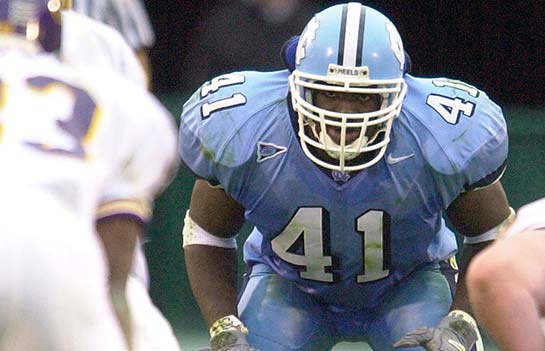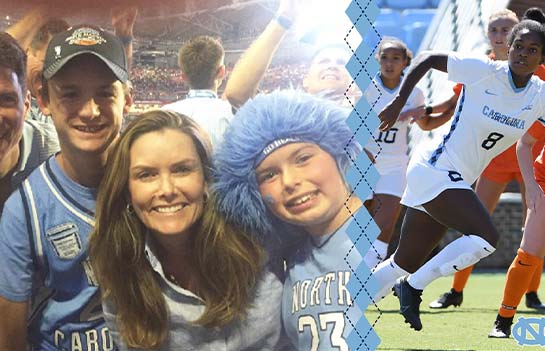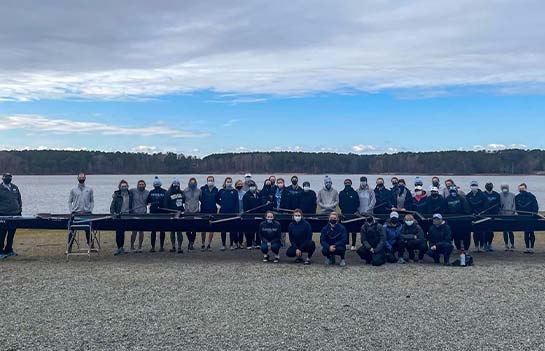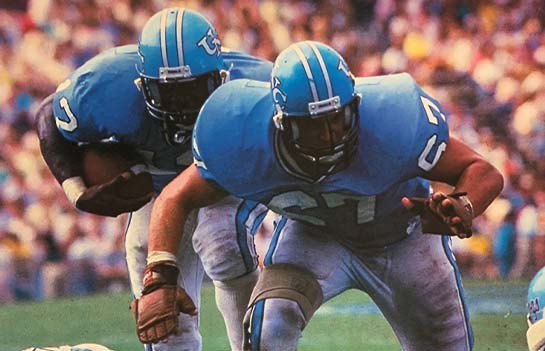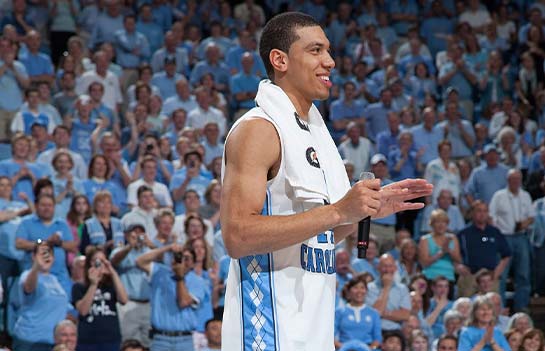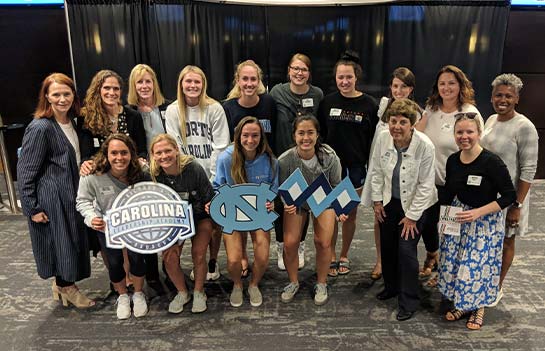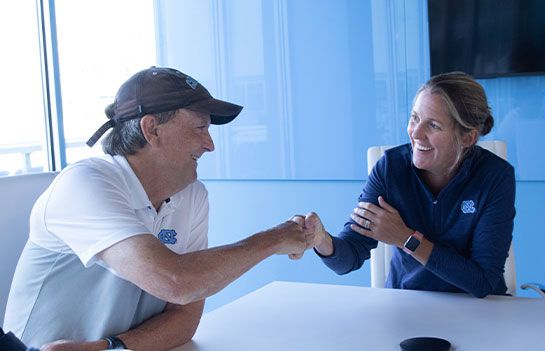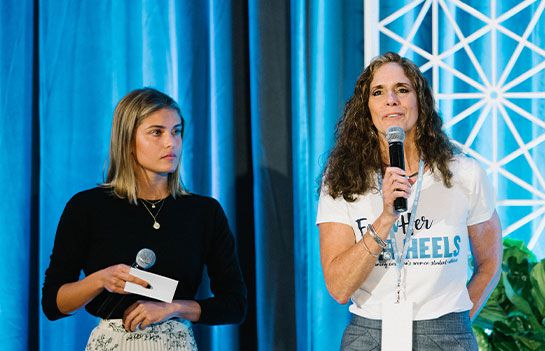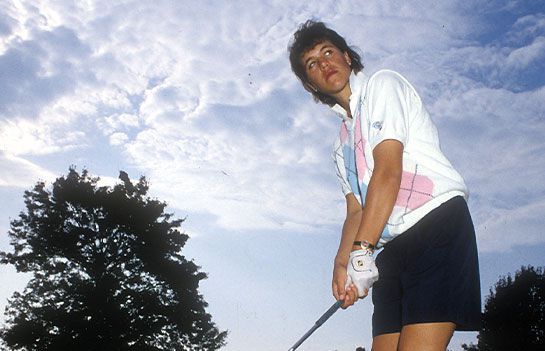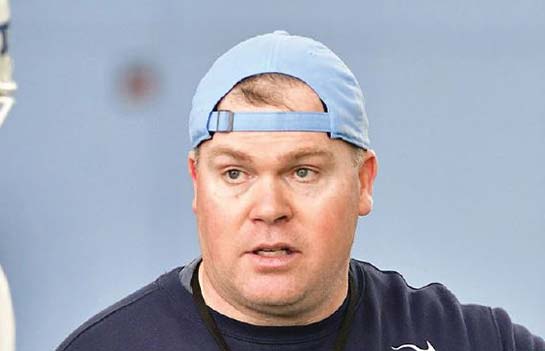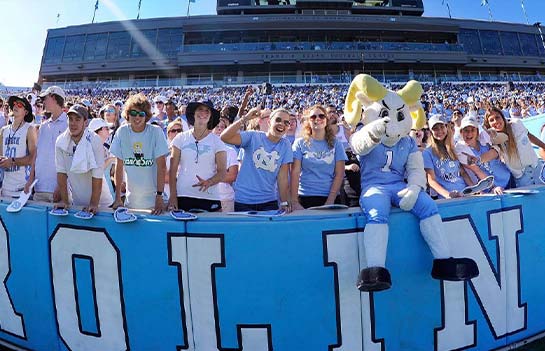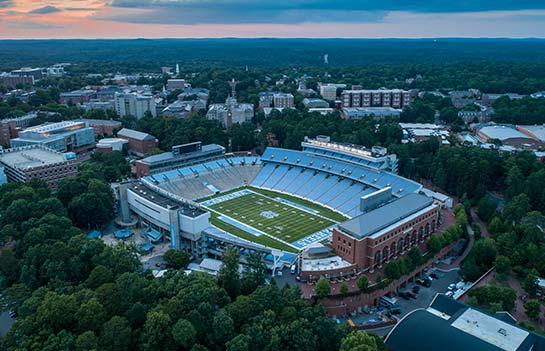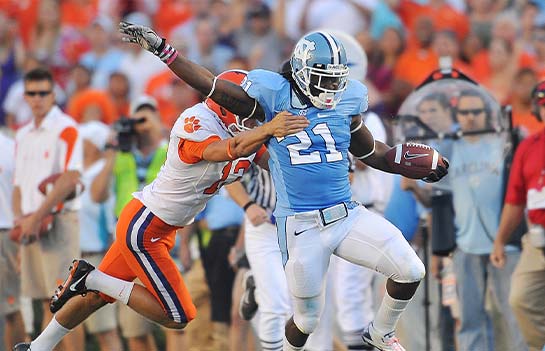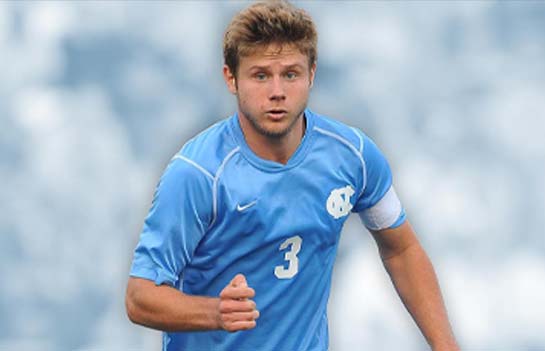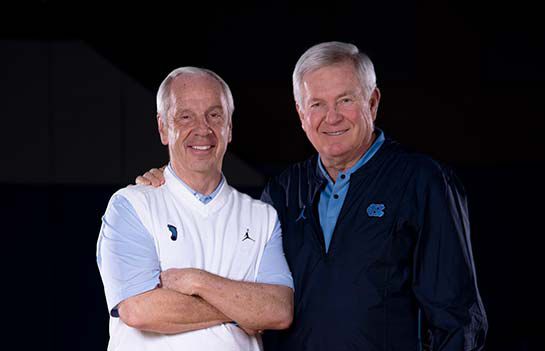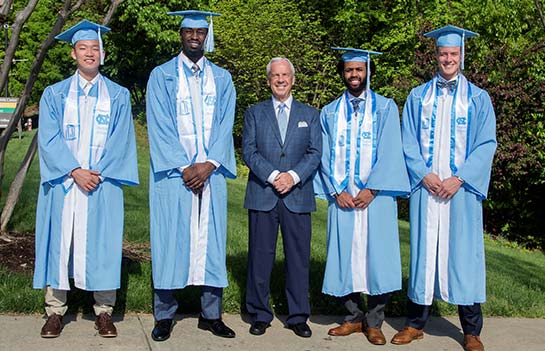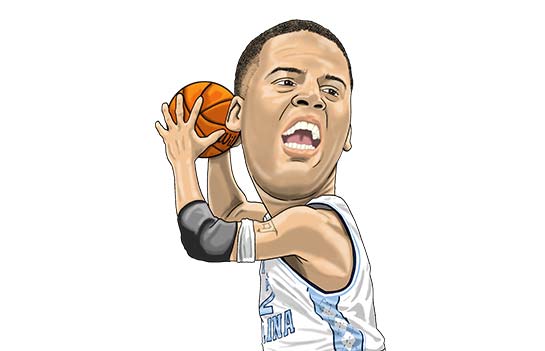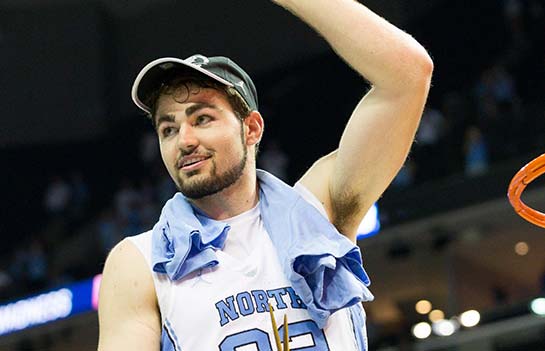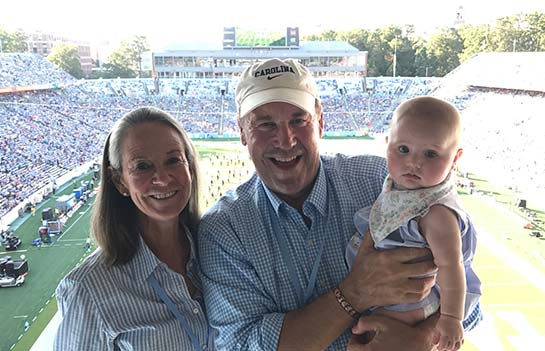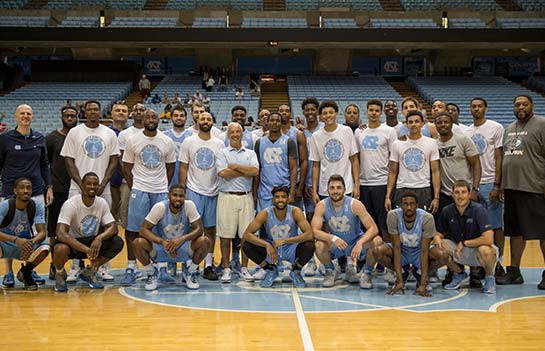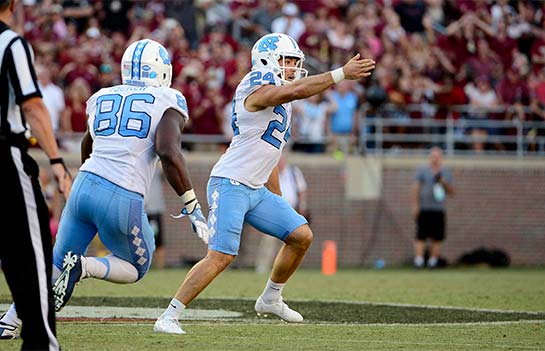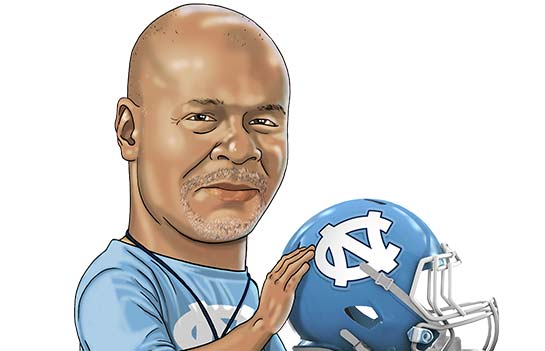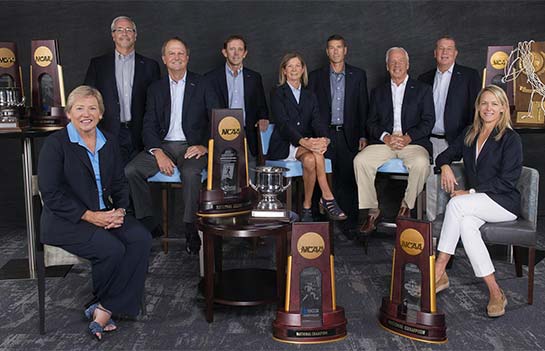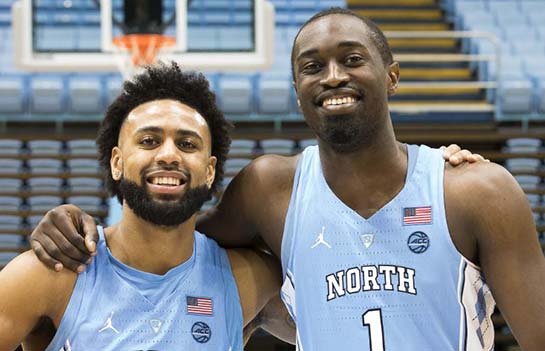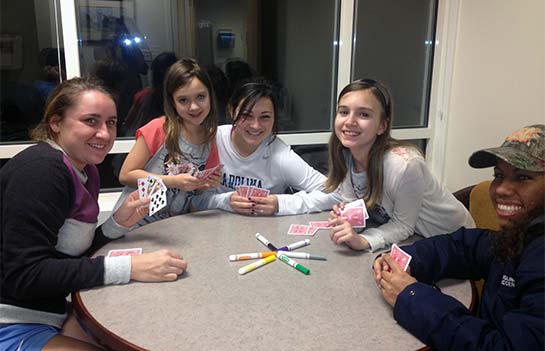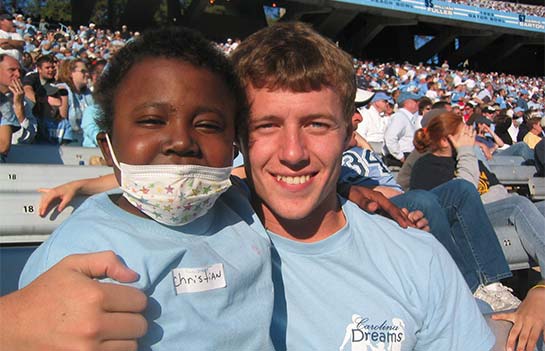A Women’s Sports School
By: Adam Lucas
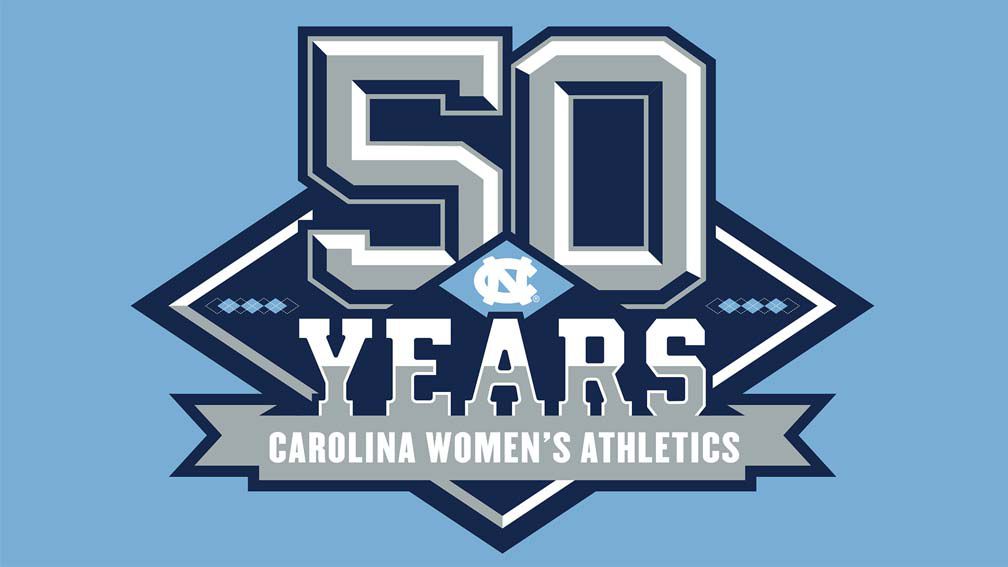
This year, we are celebrating 50 Years of Carolina women's athletics with a series of stories and social media content celebrating our many champions, legends and leaders who have shaped the landscape of women's sports in Chapel Hill. Find more at GoHeels.com/50Years and @GoHeels throughout the year.
Carolina Athletics was in a very similar state to the present day when Dean Smith provided a quote that has come to define Tar Heel women's sports.
It was the summer of 1997, and the basketball Tar Heels were returning Vince Carter and Antawn Jamison to a squad that would spend much of the season ranked No. 1 in the nation. Under the direction of Mack Brown, meanwhile, the football program had ascended to national contender status, and was ranked No. 1 in the country in the preseason edition of Football News magazine.
It was that same football magazine that asked Smith about the tiresome basketball school vs. football school debate. Could there be room on the Carolina campus, it asked, for two national powerhouse programs?
Smith's answer has become legendary: "This is a women's soccer school. We're just trying to keep up with them."
As the Tar Heels celebrate 50 years of women's sports at Carolina, those words still resonate.
At the time of Smith's quote, Anson Dorrance's program didn't need to be legitimized by anyone. Dorrance's Tar Heels had already won a staggering ten of the previous 11 national women's soccer championships, and would make it 11 out of 12 in the fall of 1997. Mia Hamm was on her way to being the most recognizable player in the world. Kristine Lilly had already won an Olympic gold medal, won a Women's World Cup and would participate in three more.
That was 1997, just over a quarter-century into women's sports at the University of North Carolina. Chapel Hill wasn't just a place women went to participate in college sports, it was already a destination for those who wanted to excel. Field hockey was about to win a third straight national championship under the direction of Karen Shelton. Women's basketball was just three years removed from winning a national title on one of the signature last-second shots in the sport's history. A promising young women's lacrosse coach named Jenny Slingluff (who you now know as Jenny Levy) had just completed a Final Four season in her program's second year of existence.
Nearly another quarter-century later, Smith would be pleased to see that the standards haven't changed. Field hockey has (stop me if this sounds familiar) won three straight national titles under the direction of Karen Shelton. Lacrosse has a pair of NCAA championships. In June, Makenna Jones and Elizabeth Scotty won the NCAA doubles championship.
Since Smith's comments in the summer of 1997, Carolina men's sports have won six NCAA championships, while women's teams have won 15. Include the success of the women's tennis squad in the ITA National Indoor championships (the Tar Heels have won the event five times), and Tar Heel women's teams have almost one national title per year in the last 24 years.
Although they were regularly racking up victories, those early Carolina women's teams didn't receive the same national attention the Tar Heel squads get today. In 1971-72, seven Tar Heel women's sports—basketball, field hockey, volleyball, fencing, swimming and diving, tennis and gymnastics—went varsity as part of the AIAW. Before the 1974-75 season, those same squads moved from the Physical Education Department to the Department of Athletics. The same thread was true in year one that is true this school year, in year 50 of intercollegiate women's sports in Chapel Hill: the Tar Heels have been winners. Those consistent victories have helped set a standard for the entire athletic department.
Some schools have one dominant program that looms over the rest of the coaches and players on campus. That's not Carolina, and that's why you might spot women's basketball coach Courtney Banghart on a morning walk with Mack Brown, or why one of the rowing team's boats is named in honor of Roy and Wanda Williams. That's why Carolina has won 55 national championships—including 39 from women's teams.
That attracts student-athletes who want to be pushed by fellow greats. Erin Matson, on track to be one of the greatest Tar Heels in any sport in school history, seemed just as excited this spring about the women's lacrosse team's push for a national championship as she did her quest for a third straight championship. Last spring, as Jamie Ortega's women's lacrosse team chased a national title, she seemed nearly as invested in the similar pursuit of the men's lacrosse team. Already this school year, men's basketball players have been regulars at Dorrance Field to watch the women's soccer team.
Fifty years after those first seven teams went varsity, Carolina is a place where greatness in women's sports is encouraged, expected and celebrated.
It might even be time to update Smith's quote. Carolina, indeed, is a women's sports school.
More Stories
The impact of giving comes through in wonderful stories about Carolina student-athletes and coaches, as well as the donors who make their opportunities possible. Learn more about the life-changing impact you can have on a fellow Tar Heel through one of the features included here:
